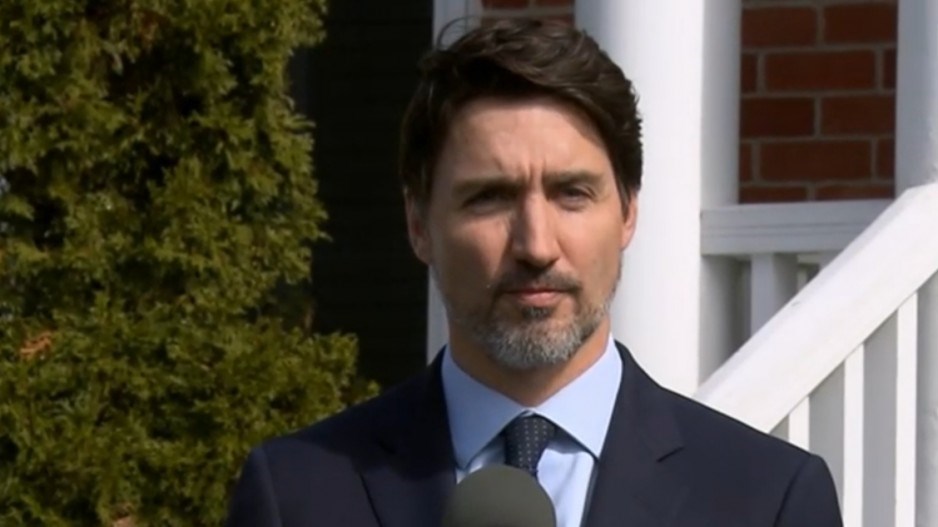Four and a half years have passed since Justin Trudeau became Canada’s head of government.
His term in office began with a gender-neutral cabinet that promised to deal with climate change and the expectation that Hillary Clinton would succeed Barack Obama as the president of Canada’s largest trading partner.
Some of these hopes did not materialize. Ottawa’s environmental policies have been chided equally by those who seek more action and those who believe that what has been done so far is unwarranted. Donald Trump is in the White House. And now, the country, and the entire world are gripped by the COVID-19 pandemic.
When Research Co. and Glacier Media asked Canadians about the prime minister’s tenure, about half (48%) believe he has performed “about the same” as they expected, while 24% think he has done “better” and 25% say he has been “worse.”
There are three regions of the country where more than one in four residents choose “worse” when thinking about Trudeau’s performance: Saskatchewan and Manitoba (33%), Alberta (30%) and Quebec (26%). In two provinces, more than one in four Canadians select “better”: Ontario (29%) and British Columbia (27%).
The public is more critical on a separate question, where 24% of Canadians think Trudeau has “accomplished much” and the same number (24%) believe it is too early to judge what he has done as prime minister. This leaves two in five Canadians (41%) who believe Trudeau has “accomplished little” – a proportion that rises to 52% in Alberta, 50% in Saskatchewan and Manitoba and 64% among those who voted for the Conservative Party in last year’s federal election.
When Canadians are asked whether each one of 10 different issues is better or worse now than six years ago, Trudeau scores well on two, mediocrely on four and is reproached on four others.
Three in 10 Canadians (30%) think Canada’s reputation in the world is better now than in 2014 (22% say it is worse) and one in four (25%) feel the same way about Canada’s role in global affairs (once again, with 22% saying it is worse). These are the only issues where the current federal government can claim a positive momentum score over the one it replaced.
There is some weakness on four issues. A slightly higher proportion of Canadians think the environment is worse now (27%) instead of better (21%) than four years ago. Similar scores are observed on ethics and accountability (25% worse, 20% better), public safety (23% worse, 19% better) and national defence (17% worse, 11% better).
There are four issues where a significantly higher proportion of Canadians feel things are worse now than they were under Stephen Harper: the Canadian economy (48% to 16%), taxation (33% to 13%), national unity (30% to 18%) and health care (29% to 19%).
As expected, specific groups are more likely to reprimand the current government on some issues. Half of Albertans (50%) think national unity is worse now than it was six years ago, more than a third of Canadians aged 55 and over (37%) feel the same way about health care, and 69% of Conservative voters in 2019 are disappointed with the state of the national economy.
In spite of these numbers, there is little appetite for change, even in a minority scenario. Across Canada, 39% of decided voters would cast a ballot for the Liberal Party in a federal election. The Conservatives are a distant second with 30%, followed by the New Democrats with 17%, the Greens with 7%, the Bloc Québécois with 5% and the People’s Party with 1%.
Right now, the Liberals are particularly popular with voters aged 55 and over (44%), precisely the group that has consistently been more pleased with the prime minister’s management of the COVID-19 pandemic. There is a split among voters aged 35 to 54 (29% for the Conservatives and 28% for the Liberals), but the governing party dominates in Ontario (44%), Quebec (40%) and British Columbia (39%).
While Canadians do not provide a glowing appraisal of Trudeau’s tenure so far, two issues are keeping the Liberals ahead: the absence of a coherent and eloquent official opposition, and public approval for Ottawa’s handling of COVID-19. Trudeau has a temporary lock on three crucial provinces: two that stood by him in 2019 and one where the Liberals saw their share of the vote drop.
Trudeau’s tenure has lacked a cornerstone piece of legislation. Years from now, historians may point to the way COVID-19 was handled as the main accomplishment of the current prime minister, but only if the level of satisfaction with his actions remains high. If the foreseen economic rebound is not auspicious, and Canadians grow more concerned with health care and taxation, it will be significantly more complicated for Trudeau to build a legacy around pandemic management.
Mario Canseco is president of Research Co.
Results are based on an online study conducted from May 1 to May 3, 2020, among 1,000 adults in Canada. The data has been statistically weighted according to Canadian census figures for age, gender and region. The margin of error, which measures sample variability, is plus or minus 3.1 percentage points, 19 times out of 20.



